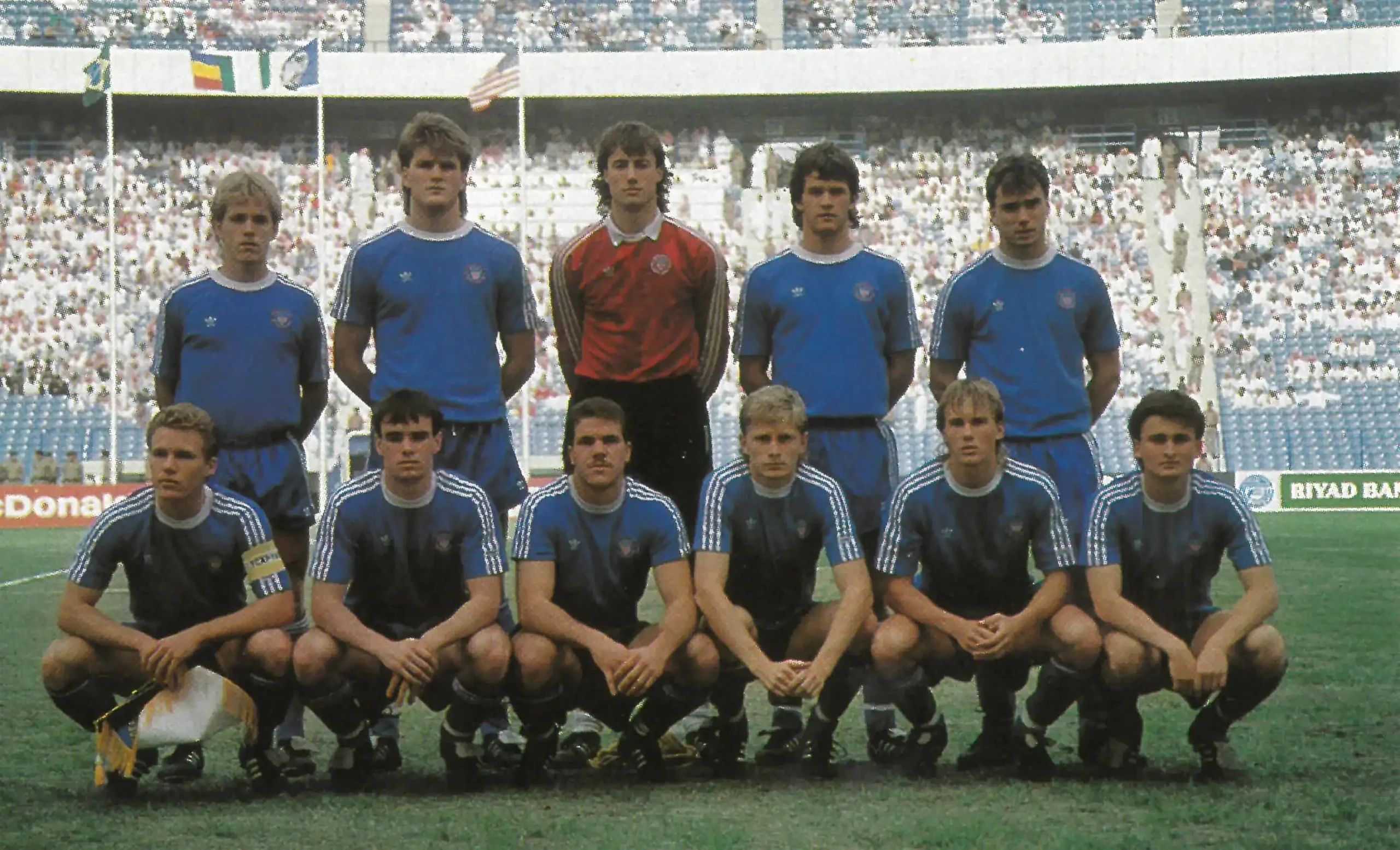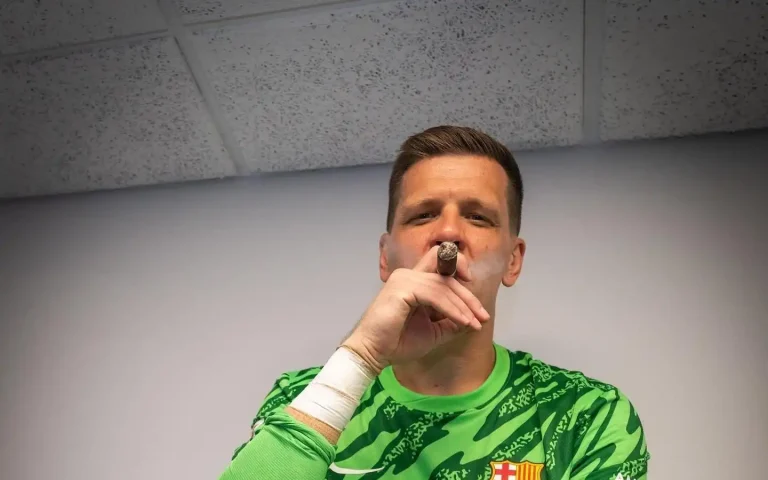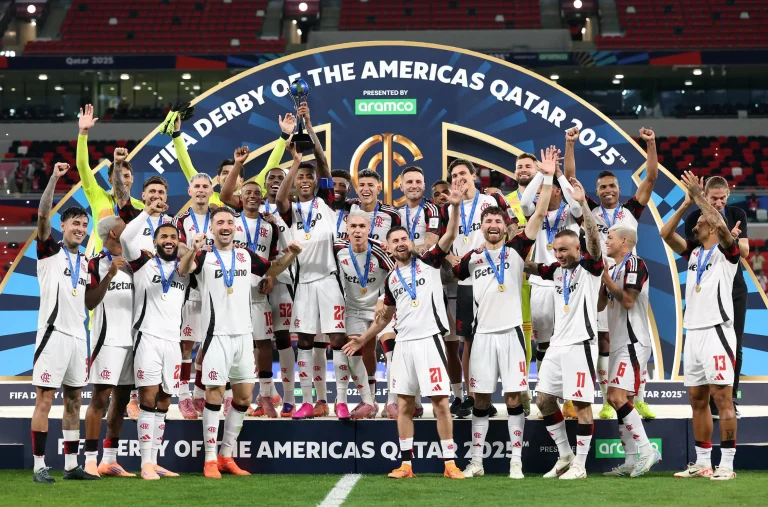In 1989, a USA team full of college students graduated with honours at the FIFA U-20 World Cup™ by going all the way to the semi-finals. It remains the furthest that the Stars and Stripes have progressed in the global showpiece.
What is all the more remarkable about USA’s run to the final four of what was then called the FIFA World Youth Championship™ is that they did not make it through Concacaf qualifying, but were given a late spot after Mexico were barred from the tournament for fielding over-age players.
Bob Gansler’s team, which included future FIFA World Cup™ star Kasey Keller in goal, quickly regrouped for the trip to Saudi Arabia. After drawing the first match 1-1 with Mali, the Americans soundly defeated an East German side who had finished third at the 1987 U-20 World Cup and featured future stars such as Steffen Freund. Keller and Freund would later bond over the encounter during their time together at Tottenham Hotspur in the early 2000s.
In the final group game, USA took a 1-0 lead against Brazil but the likes of Leonardo and Sonny Anderson inspired the Seleção to a 3-1 victory. The Americans were drawn against Iraq in the quarter-finals and managed to secure a 2-1 win thanks to goals from Chris Henderson and Dario Brose despite the power going out and causing a brief delay.
In front of a packed 40,000 crowd in Jeddah, the USA took Nigeria to extra-time after a 1-1 draw in regulation, but the African nation found the target late on to reach the final. Gansler’s men then lost 2-0 to Brazil in the third-place match in Riyadh but left with their heads held high and full of hope for the future.
For his efforts, Keller was awarded the Silver Ball as the tournament’s second-best player — with the trophy presented by Brazil legend Pele — and went on to have a legendary career with the senior team, which included being named in the squad for four FIFA World Cups ranging from 1990 to 2006.
Ahead of Chile 2025, Keller spoke to FIFA about the experience of playing in Saudi Arabia, the “wild” atmosphere against Iraq and how the 1989 team proved that Americans could compete on the international stage.
Kasey Keller: We went down to Guatemala for the qualifying tournament and didn’t qualify. We didn’t have a great tournament and I myself didn’t have a great tournament. And then when we lost to Mexico, officials very quickly told us that the match was under protest as they were quite positive that Mexico had played over-age players and there was an inquiry being made.
You don’t think much of it but in the summer we got the note that Mexico had been disqualified and we were in. Then we started a different round of prep after that and I looked at it as a second chance as I didn’t have a very good qualifying tournament to the standard that I set for myself. For me, it was like, ‘OK, I’m going to prove I’m better than this.’
When we got to the tournament, we didn’t have an easy draw clearly with Brazil in the group, and you never know what you are going to get from East Germany and an African side. I think getting a draw in that opening game in a match we should have won, we felt that the East Germany game was the hinge — this was the game that was going to decide who was going to come second in our group. And sure enough we beat East Germany and the key was just don’t get hammered by Brazil. We scored in the opening minute and we ended up losing but that set things up for (us).
Drawing Iraq… playing against the last Muslim country in the tournament, it wasn’t like anyone was hostile to us, we were treated extremely well… the overall atmosphere in the match was wild. It wasn’t West Ham-Millwall, there wasn’t any animosity but there was a really spun environment, with an edge.
It was brilliant. You have this idea in your head when you get to next levels about what it’s supposed to be like. For us as Americans, and particularly at that stage, it wasn’t things that we were used to seeing. It wasn’t like we were in the Manchester United or Flamengo academy, it wasn’t what we were part of. We sometimes played college games in front of 500 people. But because of how well the tournament was received, we knew from the first minute that this was going to be something special. It really meant something to Saudi Arabia to host this tournament and the players and organisers really felt that. By the time we got to the quarters and semis you were used to having a bunch of people in the stadium.
As a player used to getting in the limelight, I was flipping through the channels and seeing an interview of yourself subbed in Arabic. That was really cool and really helped me later in my career in terms of taking first steps in realising it’s a pretty cool job.
It’s not like today where every youth match is streamed. It was something that very few people were watching back in the day. When I got to Millwall and was on trial, people started to ask questions as I was doing really well. I mentioned that I was part of the USA World Cup team (in Italy 1990) and won the Silver Ball at the Youth World Cup, then it made sense for them. Now the ability to watch youth players is just so different. This was the starting point to help change mindsets that there were players in America that clubs should take a look at, that they were closer to the level (in Europe). We proved that we could compete. In Saudi Arabia we put that first marker down to say, ‘We’re here, pay attention.’
In the award ceremony, I remember Pele handing me the trophy and saying something to the extent that, ‘If you close your eyes, there is not much difference between the Youth World Cup and the real World Cup.’ And I remember saying like, ‘Well you would know that probably better than anybody!’
I had not met Pele before at that stage. I may have been in his orbit but I don’t think I ever spoke to him again one-on-one. At the time you think, ‘This is the new norm… this is how life is going to be.’ It doesn’t always work out that way but looking back, you think ‘That was really cool.’
We are waiting for the next marker to be set. We have had some good teams that won their group and looked like they had their chance and then weren’t able to capitalise on it. And it becomes different as you are no longer a surprise package any more. Teams now know that if you don’t perform that the US can embarrass you, if you’re one of the marquee countries.
Now the majority of those guys are pros and have a different level of institutional knowledge on them too. It’s not like, ‘Who are these college kids who no one has seen play?’ That’s all different now and it’s where we are as a snapshot as a footballing nation. We over-achieved in the beginning to put ourselves in the conversation of being competitive but have yet to have at any level that true breakout team. We haven’t had a team that’s gone all the way and that’s the next big step.
Picture credits: US Soccer



